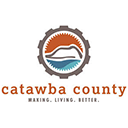July CVCA Newsletter
go.ncsu.edu/readext?830760
en Español / em Português
El inglés es el idioma de control de esta página. En la medida en que haya algún conflicto entre la traducción al inglés y la traducción, el inglés prevalece.
Al hacer clic en el enlace de traducción se activa un servicio de traducción gratuito para convertir la página al español. Al igual que con cualquier traducción por Internet, la conversión no es sensible al contexto y puede que no traduzca el texto en su significado original. NC State Extension no garantiza la exactitud del texto traducido. Por favor, tenga en cuenta que algunas aplicaciones y/o servicios pueden no funcionar como se espera cuando se traducen.
Português
Inglês é o idioma de controle desta página. Na medida que haja algum conflito entre o texto original em Inglês e a tradução, o Inglês prevalece.
Ao clicar no link de tradução, um serviço gratuito de tradução será ativado para converter a página para o Português. Como em qualquer tradução pela internet, a conversão não é sensivel ao contexto e pode não ocorrer a tradução para o significado orginal. O serviço de Extensão da Carolina do Norte (NC State Extension) não garante a exatidão do texto traduzido. Por favor, observe que algumas funções ou serviços podem não funcionar como esperado após a tradução.
English
English is the controlling language of this page. To the extent there is any conflict between the English text and the translation, English controls.
Clicking on the translation link activates a free translation service to convert the page to Spanish. As with any Internet translation, the conversion is not context-sensitive and may not translate the text to its original meaning. NC State Extension does not guarantee the accuracy of the translated text. Please note that some applications and/or services may not function as expected when translated.
Collapse ▲Catawba Valley Cattlemen’s Association
(Eat Hamburgers & Learn Baler Safety on the 2nd Tuesday of this month)
This month’s meeting is on Tuesday, 6:30 p.m., July 13, 2021.
Location: Cooperative Extension Office, ARC Building
GPS address: 1175 South Brady Ave., Newton, NC. 28658
6:30 Short Business Meeting, 6:45 Why Baler Safety- a Life Story (living thru a baler accident)
Meeting Agenda
5:30 p.m. Hamburgers served.
6:30 p.m. – Business Meeting: Brandon Bowman, President and Dr. Amanda Whitener, Treasurer.
6:45 p.m. – “My Story” Results of ignoring safety recommendations. Speaker: Mr. Bart Keller
8:00 p.m. – Meeting adjourned.
Announcements
Ø On August 10, CVCA is planning a meeting as usual (second Tuesday of the month) Speaker will be Bryant Chapman.
Dairyman moved to Cattleman who now raises cattle in Alexander county. He will discuss how he is making it work. Excellent ideas!
Ø On August 10, the North Carolina Forage & Grasslands Council will be doing a forage tour at Running T Farms, owners are Josh & Brandi Teague, in Iredell county. Give me a call if you want to attend. A vehicle will go from the extension office. It is a 45-minute drive. Starts at 6 p.m. A meal is provided with an RSVP – contact Laura Elmore @ (704.873.0507).
Ø Thank you all for the support at the Prospect Lamb and Goat Show. (Over 100 animals shown in 5 hours) and support of the Beef Expo (40 cattle present). Everyone enjoyed the good lunch.
Except for some small farm and ranch operations, small 40-to-60-pound square bales are being replaced by large round bales that can weigh more than 1,500 pounds. This shift is due to the increased number of round balers, transport equipment, and time and labor savings. In fact, with today’s tractors and machinery, one person can cut, bale, transport, stack, and feed hay without the need for additional labor. Despite the relative ease of producing hay, round balers are responsible for numerous serious injuries and deaths to farmers. Round balers require more horsepower to operate, and present more wrap, pinch, and shear hazards, when compared to conventional square balers. Inexperienced operators working alone often overlook potential hazards or take unnecessary risks without proper training. The physical nature of round bales is also responsible for many injuries. Round bales weighing more than 1,500 pounds must be handled carefully and with proper equipment.
BALER PREPARATION. Round baler safety depends in part on how well the baler is prepared for use before the season starts. Comprehensive, pre-season maintenance can minimize downtime in the field, reduce the potential for injuries during field maintenance, and improve harvest efficiency.
As part of a pre-season checkup, you should:
ü Clean the baler thoroughly, removing crop residues and other debris.
ü Lubricate all parts according to the maintenance guide.
ü Check for missing, loose, and damaged pickup mechanism teeth.
ü Replace all missing guards and shields.
ü Inspect all belts and chains for wear or damage. Adjust belt tension to prevent slippage.
ü Check hydraulic hoses for evidence of leaks.
ü Test the twine feeding and cutting mechanism for proper operation.
ü Check the slip clutch, roll scraper, and rear gate latch for proper function.
ü Check all lights, replace damaged reflectors, and clean or replace the slow-moving vehicle emblem.
ü Make sure tires are in good condition, especially if you will be pulling the baler on a public roadway.
ü Affix a NEW 10-pound ABC fire extinguisher to the baler.
ü Pre-season preparation will also allow necessary lead-time to get needed replacement parts. This is also a good time to train new employees on baler operation, field maintenance, and safety.
Thanks to Tim Conn for information in this article.
Tim Conn, Store Manager
James River Equipment
2616 Northwest Blvd. Newton, NC 28658




